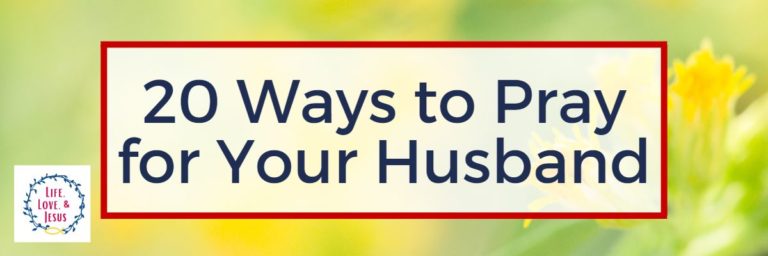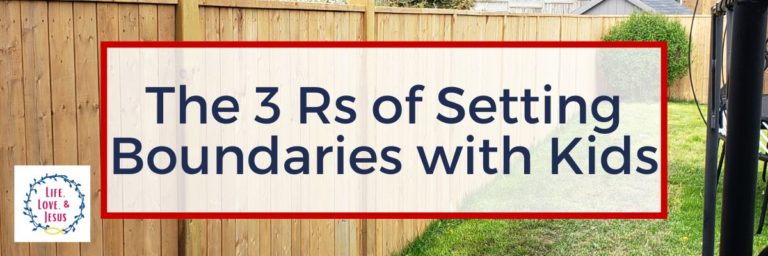5 Steps to Forgiveness in Marriage
This post contains affiliate links. If you click & make a purchase, I receive a commission! Thanks! Read my full disclosure policy. As an Amazon Associate, I earn from qualifying purchases.
If you’re anything like me, you know you need to be forgiving. But you also want “3 easy steps to forgiveness” that will magically make everything better.
Sorry to disappoint, but there’s no magic. There’s grace – lots of grace. And freedom. And so many blessings and healing and mercy and more grace.

But before any of that, there’s just plain hard work of forgiveness. The five steps to forgiveness discussed in this article are easy to understand – just not always easy to do. Take it from someone who knows.
But the rewards are so very worth it. Always.
My Story of Forgiveness (Short Version!)
I’ve been married to the same man for more than 40 years. Right off, you know that takes lots of forgiveness.
During that time, we’ve been separated three times (twice he walked out, once I asked him to leave). We’ve moved 20 times. He’s gone through 11 jobs (I’ve had 4). I’ve had three miscarriages. We’ve gotten deep in debt and crawled back out.
We’ve also – by God’s grace – managed to raise two amazing sons who are now amazing husbands and fathers. We’ve fallen back in love with each other multiple times. And we keep leaning hard on the Lord.
As in every long marriage, there’s a lot more I could say. But you know, if you know anything about marriage, that it’s been hard. And the forgiveness has been critically important.
So, while I’m well used to opportunities to forgive, I’m also well aware of how poorly hard it is and how bad I am at it sometimes. Sometimes, again by God’s grace, I’m amazed at how effortless it seems. Trust me – those are the more rare times.
As you read this, just remember, that I’m preaching to myself more than anyone else. If you can learn something useful from the road I’ve walked, I’ll be grateful. If not, don’t quit trying to master this gift of forgiveness. Because you know it’s more for yourself than for anyone else.
What is Forgiveness ?
Defining forgiveness is like trying to catch a waterfall. I know what it feels like when I confess my sin and am forgiven. I know what it feels like when I give it and when I withhold it. I know how unforgiveness can poison my soul and yet I can still hold on so tightly.
But defining forgiveness? That’s more challenging. Here are just a few ways it could be expressed:
- Forgiveness is giving up my right to be offended.
- It is letting go of my right to demand payback.
- Forgiveness means I don’t need or expect an apology.
- It’s laying down my demand that the offender make things right.
- Forgiveness is replacing an insistence on vengeance with love.
- Forgiveness is letting Jesus’ grace flow through me to someone else – regardless of whether that person is sorry for their actions or not.
In addition to all of that, forgiveness is most of all an act of the will.
You can’t feel your way to forgiveness. You choose forgiveness. I choose forgiveness. We choose it in spite of the hurt, the anger, the damage done to you and others. When you and I forgive, we choose to let God handle that person.

We trust that He will because He promises just that many times in His Word. (Isaiah 35:4; Jeremiah 11:20; Romans 12:19; Hebrews 10:30-31).
Does that mean automatically returning to the way things were before the offense? No. Never. Definitely not! If we do not take steps to correct the situation or the relationship, then we will most likely be hurt again.
Let me use my life as an example.
My husband and I had a serious argument one day several years ago. At the time, I was working on my master’s degree and had to go to class and take an important test the next day, which was a Saturday. I was gone for several hours, and when I returned home, he had moved out.
That’s right – left without even a conversation, a head’s up, an effort at communication.
We would be separated for a year. We went to counseling. He filed for divorce. Things were ugly and hard, and I was very, very hurt.
When he asked to be let back into our family twelve months later, many things had changed. I had graduated with my master’s degree. I was making more money than he was and wasn’t as stressed financially. He had not paid child support. He had made many stupid decisions. I thought long and hard about reconciling.
In the end, we worked it out. But that meant several years of counseling. It meant many, many changes in our lives and how we related to each other. It meant years of rebuilding trust brick-by-brick. And it meant a lot of forgiveness! Buckets of forgiveness. Oceans of forgiveness.
The point is, forgiveness alone wasn’t enough.
Change was required. Work was required. Forgiveness doesn’t automatically mean that change and work will be done. My husband could have chosen not to return. I could have chosen not to let him back in. But neither of those choices would have changed the need I had to forgive him.
You’ve heard it before, but we all need to be reminded of this truth: Forgiveness is never for the offender – it is always for the offended, for the one who has been hurt.
Forgiveness frees the hurt person to experience healing and wholeness. It may not mean reconciliation, as it did in my case. But even in that best-case scenario, before we could make progress on restoring our relationship, I needed to heal from the hurt. And the only way to healing was through forgiveness.
Let me repeat that: the only way to healing is through forgiveness.
If you’re struggling to forgive someone, repeat that sentence to yourself all day every day for as long as it takes. Forgiveness is for you.

What the Bible Says About Forgiveness
The Bible contains many verses about forgiveness. But all those verses can be summarized in this one statement:
God has forgiven us more than we can imagine because of His love for us and the death of Christ for our sins, therefore we need to forgive others.
Here’s just a sampling of the wonderful truths found in God’s Word. Choose one today to memorize!
- “You are a God of forgiveness. Gracious and compassionate. Slow to anger and abounding in
lovingkindness .” Nehemiah 9:17 - “For if you forgive others for their transgressions, your heavenly Father will also forgive you.” Matthew 6:14
- “If your brother sins, rebuke him; and if he repents, forgive him.” Luke 17:3
- “In [Christ] we have redemption through His blood, the forgiveness of our trespasses, according to the riches of His grace.” Ephesians 1:7
- “Be kind to one another, tender-hearted, forgiving each other, just as God in Christ also has forgiven you.” Ephesians 4:32
- “If we confess our sins, He is faithful and righteous to forgive us our sins and to cleanse us from all unrighteousness.” 1 John 1:9
How to Forgive
Before going further, I want to assure you that forgiveness, unless the offense is really insignificantly small, is seldom a one-and-done event. It is a process of repeatedly forgiving the person who offended you. Pain is real, and forgiveness does not make it disappear. Therefore, when the pain of the offense rears its head again and stirs up feelings of anger and betrayal and hurt, you need to forgive again. And again. And again. Ask me how I know!
Forgiveness frees you, not from the pain and not from the consequences, but from being stuck in the past and unable to move forward.
That said, the process of forgiveness has some non-negotiable, can’t-be-avoided, must-do steps to take.
First: Acknowledge Your Pain
You were hurt and that matters. Don’t pretend it’s no big deal. Don’t smile and say, “It doesn’t matter.” It does matter because you matter. So your first step is always to admit that. You were hurt by someone. Probably by someone you trusted.
I’m going to repeat myself because we, as women, as so prone to pretend everything is fine. Pretending the hurt isn’t there will never bring you healing. You are a valuable person, made in the image of God and redeemed by the blood of Christ. Your pain is real and needs to be recognized and acknowledged.
If the only person who ever hears about your pain is God, that’s OK. Only you know who you can trust with your pain. But at the very least, acknowledge it to God and yourself. Personally, I think it’s best if you have someone you can talk to as you go through this process, a friend or a counselor.
That said, at times in my life and my journey of learning about and living forgiveness, my way of acknowledging my pain has been to journal. Many times I have turned to journaling. There is something about getting all the pain and anger and hurt out on paper that is helpful to me. It may be helpful to you as well.
So, do whatever you need to do to acknowledge that you were hurt and admit your pain. Pray, journal, talk, cry, scream, eat chocolate (just not too much!). Just remember, this is the starting point. Don’t camp out here!
Second: Pray

Once you’ve acknowledged that your hurt and pain and real, take all of that pain to the Lord in prayer. This is especially important in marriage and parenting relationships. Most of us want to fix our mates and our children. But that isn’t your job or mine.
God is in the life-changing business and when we bring our pain to him and hand our need to fix or control or lash out over to Him, two things happen. First, we find healing – sometimes just a little at a time. Second, we move out of the way to let God do whatever He chooses to do.
These lists on 20 Ways to Pray for Your Husband and 20 Ways to Pray for Your Wife may be helpful.
The Lord is so much better at knowing what needs to be done and doing it. Let’s face it – you and I are really bad at that. As Lysa TerKeust says, “God is good at being God.” This book by her on forgiveness is great! And so is this one on moving forward.
Taking your pain to the Lord in prayer doesn’t necessarily mean that you say nothing. We’ll get to that soon. But it does mean you make sure that God gets the brunt of your anger and frustration. He can handle all your emotions.
I’m particularly fond of getting in my car and going on a long drive so I can rant and rave and pray and cry and “get it all out.” He knows. And, because of the “prayer” part of the process, by the time I park my car again, I’m enveloped in His peace and I’m able to act rationally. He already knows how you’re feeling, so don’t hesitate to lay your heart and hurts bare before Him.
I remember clearly one day, when Howard and I were separated, that my oldest son came home from work early (the other son was at baseball) and found me yelling, crying, and throwing things. He was only 17 and didn’t know what to do – so he called my best friend, who came over. The point is – I wasn’t expecting him, and he wasn’t equipped to handle my emotions. I was ‘having it out’ with God, and my son saw some of the pain and ugliness I had tried to protect him from. God is the right person for those raw emotions – and good friends. Not your kids. Not your spouse, especially if he is the cause of the pain. Take it to God.
Third: Admit Your Part
Third, do some soul-searching and dig out your responsibility for the situation. No problem is ever one-sided. It might be 99% the other person’s fault (probably not!), but you need to admit your 1%.
This might take some serious time in prayer and in the Word. It might mean talking with faithful friends who won’t let you off the hook. It could mean seeing a counselor regularly for a while.
Whatever it takes, commit to doing the hard work. Even if the relationship cannot be salvaged, you can grow through the pain of being honest with yourself. This could be a long process. Or the Lord may help you through it quickly, if not easily. Whichever it is, persevere to the end and you’ll be amazed at the blessings.
I can’t leave this topic without pointing out one painful reality of being human: you and I are very good at lying to ourselves. Jeremiah 17:9 says, “The heart is deceitful above all things and desperately sick; who can understand it?”
When I humbled myself to the point of asking, begging the Lord to show me what I was hiding from myself, the things about myself I didn’t see and didn’t want to see, He answered that prayer. I saw my own sin and unforgiveness so clearly that I could not do anything other than repent. First, to the Lord. Then to my husband.
It was hard and painful and so very good. Be bold and ask the Lord to show you what you need to know.
Fourth: Talk
Fourth, depending on the offense and your circumstances, talk to the offender. This might need to be in a neutral setting such as a counselor’s office or at least in public where blow-ups are less likely. Use caution in deciding whether, when, and what to say.
Perhaps the person who offended you isn’t even aware of what they did. You could have two responses to this: deal with it only between you and God because what would be the point of causing pain to another person when what they did was unintentional? Or, discuss the problem with the other person, informing them of how they hurt you and what you would like for them to change so it doesn’t happen again.
Or maybe, like my situation, the pain you’re experiencing is the result of long-standing patterns in your relationship that need to be addressed. In such a case, seek professional help so you can talk productively to your partner, not just trade accusations.
Of course, if the situation you’re in is in any way dangerous, talking to the offender might best be avoided. Sometimes you need to face reality and avoid relationships that cause you or others (your kids?) harm. It’s a tough call, which is why we all need good friends, a good church, and maybe a good counselor.

Finally: Move Forward
Finally, make a plan for moving forward.
- Will the offender be a part of your life in the future? Plan for how to restore and rebuild the relationship.
- Are you done with that relationship? Plan for how to avoid recreating the same mistakes you made in other relationships.
- What changes do you need to make in how you communicate?
- Do you or the other person need to change jobs?
- Or do you need to move your entire family to get a new start?
- Maybe you need to find a new church or start going to church again.
- Are you restoring a marriage after an affair? Does that mean moving, changing jobs or churches, or even cutting ties to old friends?
- Are you moving forward after a painful divorce? Does that mean new friends or leaning harder on old ones?
- Will you be going back to school to pursue long-delayed dreams? Or maybe taking a much-needed vacation?
Ask yourself these questions and more. Give yourself time. If you’re moving forward after a traumatic experience, such as a divorce, rape, or affair, try not to make any big decisions for several months.
The bottom line, however, is that only you. after seeking counsel and guidance from God, friends, family, or counselors – or a combination of those – can determine what your future will look like. And sometimes those decisions and that future will be a long time coming. Be patient and let the Lord guide and direct as He brings healing and wholeness.
After my husband moved back home we went to counseling for more than a year. Then back a few times periodically. Things were challenging, often very difficult, and I wasn’t always sure what I wanted or where things would end up.
We had many rough years learning to trust each other again. During those years, we moved a few times. We both changed jobs. Our sons graduated from high school and then college. We talked and talked and talked. And now we’re here.
Check out this article for some great cheap dating ideas for when you’re ready to build (or rebuild) your relationship.
Here, enjoying our adult sons, their wives, and our grandchildren. Continuing to learn about communication and forgiveness and grace. Pursuing long-delayed dreams. And working it out together, by God’s grace.
My final encouragement for you – don’t let offenses, hurt, pain, and unforgiveness derail your life. Be strong – only the strong can forgive. Be bold enough to love again. And trust God to turn all the pain into something beautiful.
“[to] provide for those who grieve in Zion— to bestow on them a crown of beauty instead of ashes, the oil of joy instead of mourning, and a garment of praise instead of a spirit of despair. They will be called oaks of righteousness, a planting of the Lord for the display of His splendor.” Isaiah 61:3






